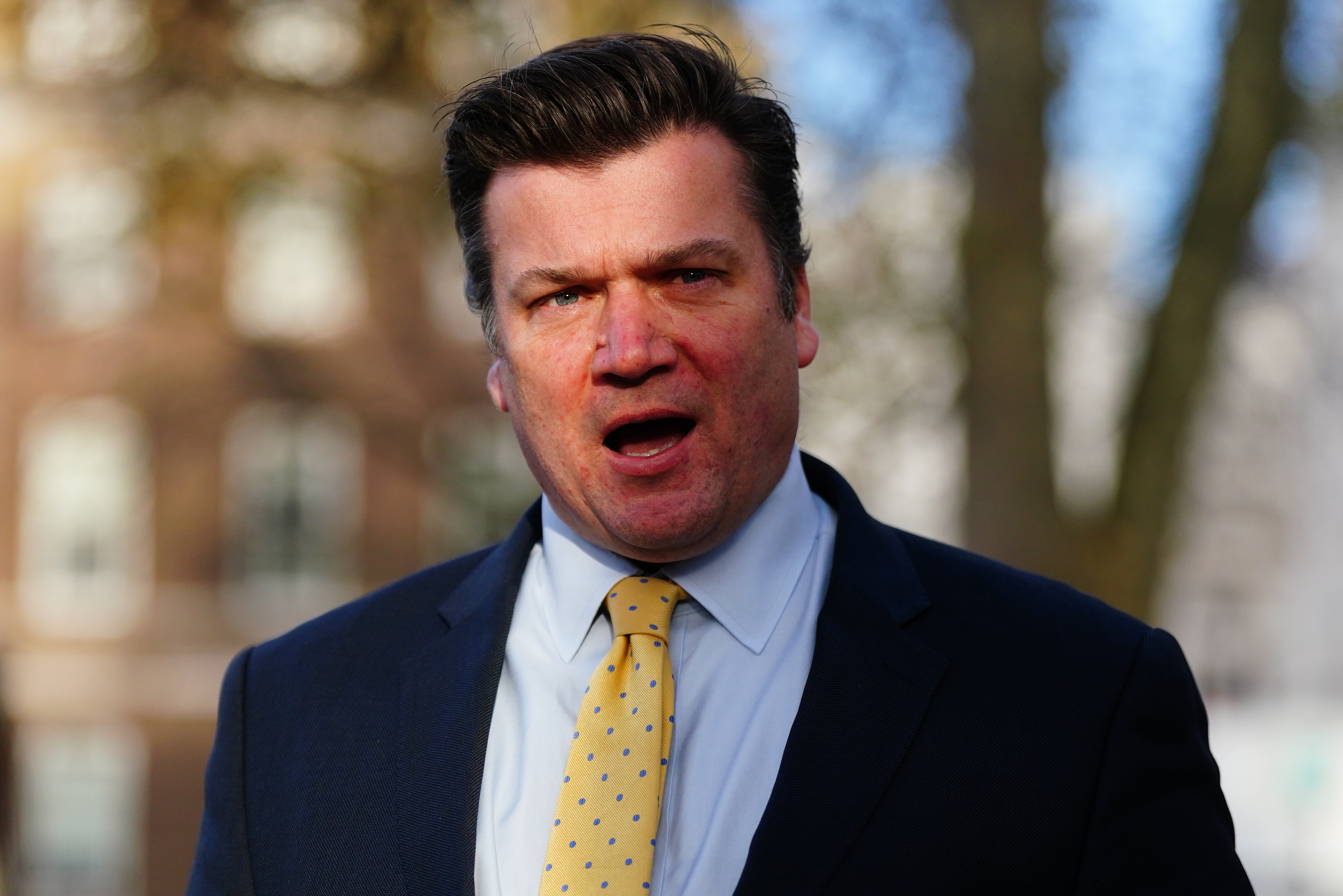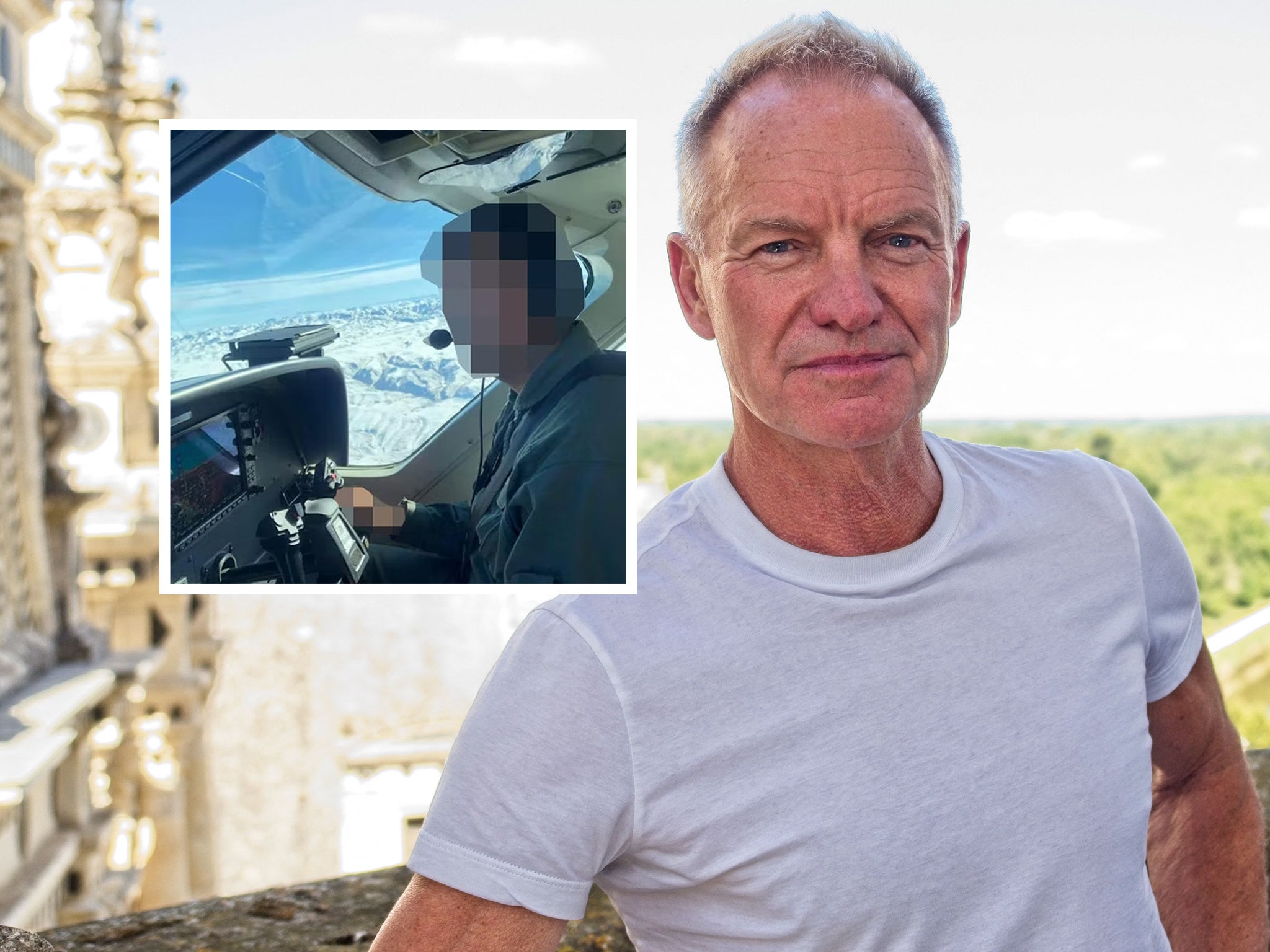Defence minister refuses to give lifeline to Afghan veteran who faces deportation to Rwanda
The Independent is campaigning for Afghan war heroes who served alongside British forces to be granted a safe haven in the UK
Defence minister James Heappey has refused to give a lifeline to an Afghan war hero who served alongside British forces and is facing deportation to Rwanda.
The minister, who was questioned about the veteran’s case in the House of Commons, said that the former airman would not qualify “in principle” for the Ministry of Defence’s Afghan resettlement scheme.
The Afghan pilot flew combat missions against the Taliban, and came to the UK on a small boat after he says he was unable to find a safe and legal route to apply for asylum here.
The Independent is calling for the pilot to be given a safe haven in the UK, and has been supported in its campaign by a string of UK generals, the former head of the Royal Navy, former Tory leader Sir Iain Duncan Smith, and music legend Sting.

Several former Tory ministers have already said they are appalled by the treatment of the former airman, who risked his life in the name of duty and has left his family in hiding in Afghanistan while seeking safe refuge.
The veteran, who was described as a “patriot to his nation” by his coalition forces supervisor, wrote directly to Rishi Sunak to plead his case, but is yet to hear anything back.
He has applied for asylum in the UK, and has also applied to stay under the Arap (Afghan relocations and assistance policy) scheme, which is the dedicated resettlement scheme operated by the Ministry of Defence.
When asked about the pilot’s case on Monday, Mr Heappey said his department was looking at “whether or not there are any special circumstances under which the application could be approved”.
But he added that, “in principle, as a member of the Afghan national security forces, rather than somebody who worked alongside the British armed forces, [the pilot] would not automatically be in scope”.

Mr Heappery said the government had received ”hundreds of thousands of applications” for the Arap scheme – the vast majority of which were from people who had served in the Afghan national forces, for whom the scheme was never intended to help.
“Whilst their effort was heroic, [that] was never who Arap was aimed at ... Now, their desperation to leave their country is understandable, but the Arap scheme was always what it was set up to be – the evacuation of those who served alongside British forces,” he said.
It is estimated that between 75,000 and 150,000 applied for the scheme in August 2021, of which only 5 per cent received help, according to written evidence to the Foreign Affairs Committee.
Guidance on the government’s website says that Arap is for “Afghan citizens who worked for or with the UK government in Afghanistan in exposed or meaningful roles”. However, The Independent understands that its remit is in fact far more narrow than this suggests.
The scheme is only accepting those who were directly employed by the British forces, or those who held a role that materially contributed to a specific British effort in Afghanistan.
Applicants must show that “the UK’s operations in Afghanistan would have been materially less efficient or materially less successful if a role of that nature had not been performed”.
This specific role must also have resulted in a “high and imminent risk of threat to your life”, according to Arap rejection emails seen by The Independent.
Even Afghans who worked directly for the British army as part of its labour support unit, for instance those who worked as mechanics, have been repeatedly rejected from the resettlement scheme.

Members of the Afghan territorial force, nicknamed “the 444s”, have also been rejected, despite the force having been created, trained and funded by the British army.
The government’s general Afghan resettlement scheme, run by the Home Office, cannot be applied to directly. Afghans have to be referred for resettlement in the UK by the UNHCR, and so far only 22 people have come to the UK under this scheme.
It is also impossible to apply to be referred if you are still in Afghanistan, and persecuted Afghans would have to travel to a neighbouring country – such as Pakistan – in order to seek help via the scheme.
Labour MP Alex Cunningham raised the pilot’s case, saying: “Ministers will be aware of the series of articles in The Independent campaigning for asylum protection for veteran Afghan pilots and others who fought with the British forces in Afghanistan at great personal, mental and physical cost.”
He asked Mr Heappey to “confirm once and for all” that these veterans would not be deported to Rwanda.
Labour MP Steve McCabe also challenged the Tory defence minister on the case, arguing that “scandals like the pilot threatened with [being sent to] Rwanda” could damage the reputation of the UK’s armed forces.
“Does the minister recognise that the shambles over our treatment of Afghan refugees is damaging the reputation of our military, with obvious implications for future operations?” Mr McCabe asked.
Mr Heappey responded, saying that because the veteran was a member of the “Afghan national security forces rather than the UK security forces”, there was a limit to how much help the government could offer.
Sign The Independent’s petition calling for UK to support Afghan war heroes who served alongside Britain
“The terms of Arap were, from the very beginning, about those who worked with the UK armed forces in direct support of our role in Afghanistan – not the entirety of the Afghan national security forces,” he said.
Afghans now account for the largest cohort of small-boat migrants, according to Home Office figures, with more than 9,000 crossing the Channel in small boats last year.
Join our commenting forum
Join thought-provoking conversations, follow other Independent readers and see their replies
Comments


Bookmark popover
Removed from bookmarks